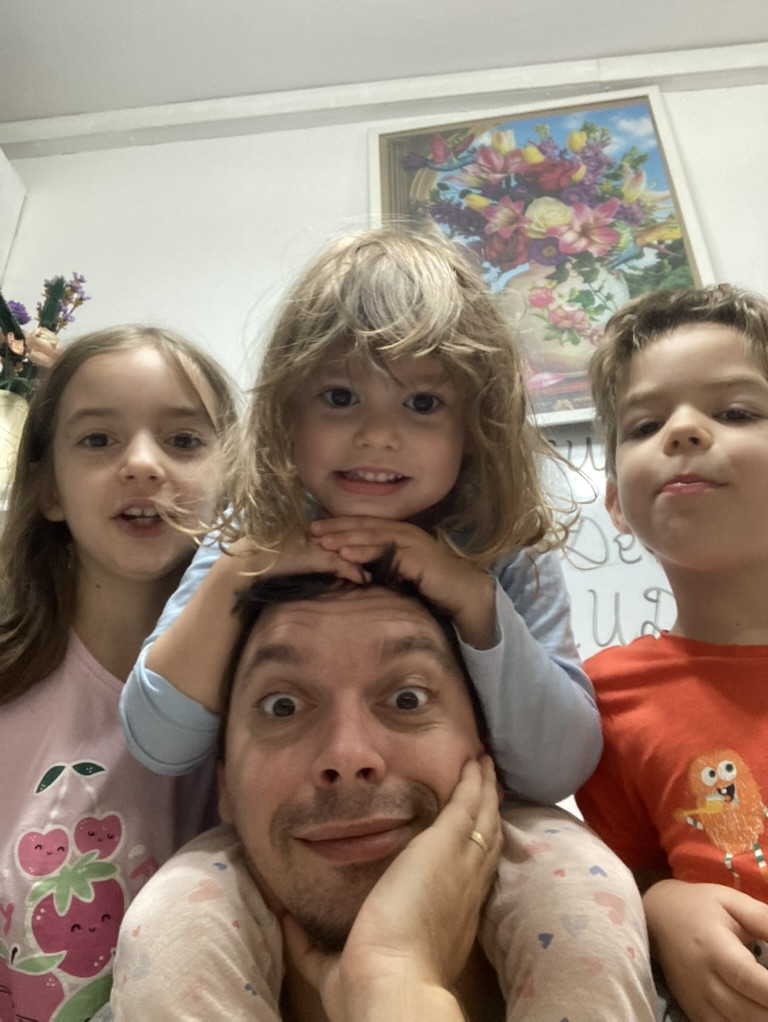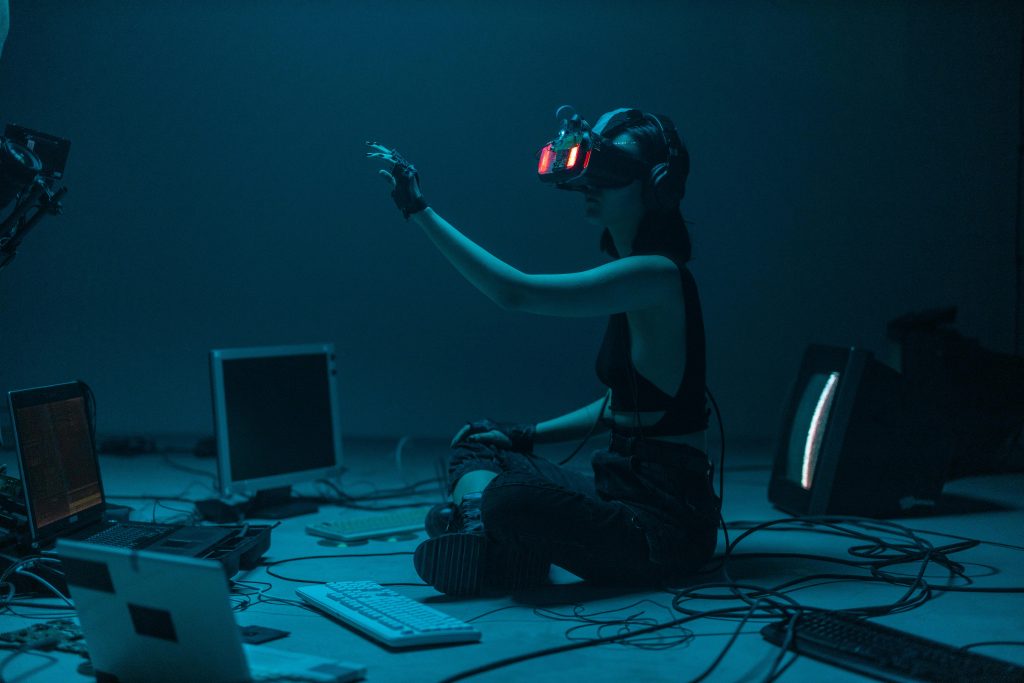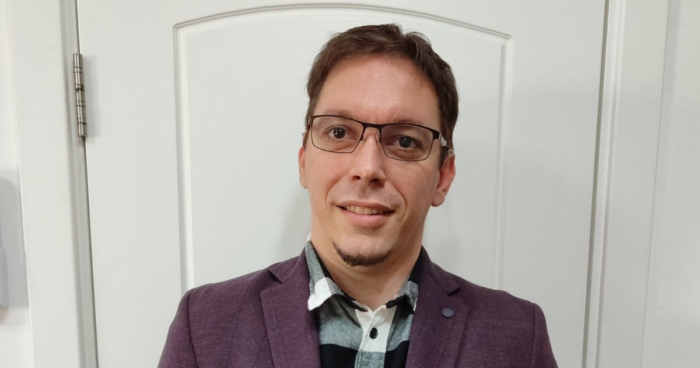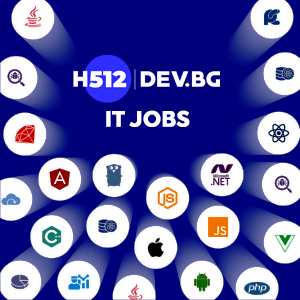Krassimir Karov is a DevOps expert with over 15 years of experience in the IT industry – a time in which he went through several positions, including those of Service Delivery Manager and RedHat & Open Source Software Support Engineer in IBM’s Sofia office.
As a Senior DevOps Engineer, as he currently is at Netea, he identifies AWS, Python and Terraform as technologies that are interesting to him and motivated him to take his current position.
He dedicates his free time to his faith and the church where he is an usher, as well as family and new knowledge. Krassimir tells more about himself in the “8 Questions” series.
How did you end up in the IT industry? What drew you to it and when did it happen?
Working with a computer has been a goal of mine since school, as I had access to one from an early age. Mainly I was attracted by the opportunity to play games on it and chat with other people on IRC channels. I initially started working in a support centre, which started me on my path.
I love challenges and problem solving. There aren’t many challenges in the support center and the problems are all the same. It quickly became boring and I found that I had no future in my current position.
IBM was a dream for me because I was familiar with the history and technology they were developing – mainly hardware. They had just opened positions for hardware and software support and I was contacted by a person from a staffing company who suggested I apply there. I didn’t give it a second thought.

Once I got into IBM, I came out of the lethargy I had sunk into and started to really learn and focus on my own development. My goal initially was to move up to a management role and help new people in the industry establish themselves professionally. I went through various positions, got to where I wanted to be, but saw that it all cost more than I was willing to pay.
Then my second child was born and I knew it was more important to pay attention to my family. The position is not important to me – if I’ve got the skills to do it once, I can always do it again. At the time, IBM had bought RedHat and I had the wonderful opportunity to join the support team, where I was also able to get motivated and earn a few certifications. This gave me more important skills for my career development.
The most valuable things I took away from working there are: soft skills, emotional intelligence, learning to learn, perspective from both a low position and a higher position, and that problems are actually opportunities for development.
What motivated you to take the Senior DevOps Engineer position at Netea?
I wanted to be in a place with daily exposure to interesting technologies – AWS, Terraform, Python. A place where I could build on my skills and add market value.
What do you find easiest and hardest about your job?
The easiest thing for me is just getting the job done. The hardest thing for me is when I have to complete a task in a way that is not within best practices, and I know it will accumulate technical debt, and the decision to do so is not up to me.
Which company benefits have you found most useful?
The home office and flexible hours.
What do you think about homofis and are you taking advantage of it?
Homoffice is a great tool as long as it is used purposefully and to its full potential. For me, homoffice is a must! Lots of people abuse it, but I won’t go into details – abuse is subject to disciplinary decisions. We work with all sorts of people from all over the world and to go into the office and have an online meeting is insane to me.
Separately, it’s generally better for both the employee and the employer to get some time away from home when your child gets sick than to take sick leave. I don’t have to be in the same location to contribute value to my employer or client.
I like being able to go to the office – to socialise with colleagues, discuss different ideas for work, vary the daily routine because in a work-from-home condition you can easily get into burnout mode.
Explore more
What is your free time booked for?
I am a person of faith and I am an usher at a local church. Prayer life and time in Bible study are a major driving force for me. Then comes my family – my wife and children and caring for them. And when I can get 20-30 minutes away from that, I like to watch training videos or read technical literature and study new technology.

I used to be a very broken person. My whole life up until about my 25th year was an extremely uncomfortable place. If someone gave me a machine to turn back time, I would break it.
It wasn’t through logic or analysis that I went to church, but simply through personal revelation from God, I knew that if I didn’t go to church, my life would become even more broken, to the point where there would be no possibility of repair.
When I received this revelation, I grabbed a friend from IBM who I knew went to church, and almost forcefully asked him for the address of the church and the time to gather. I told him, “I’ll see you on Sunday,” and he looked at me stunned. I have been at that church, Victory Christian Center, ever since.
A few years later, when the children were grown, I became involved in the stewardship ministry because I wanted to contribute my labor to the church I had been attending for so long. This includes preparing and setting up the hall, greeting and seeing people off, or keeping the hygiene rooms clean. I love it when I greet people who are frowning and they smile back at me, because at least for a little while I am separating them from their heavy thoughts.
Finish the sentence, “For me, work is over when…”
…when I’m satisfied with the way it was done.
Against the backdrop of rapid technological development, what do you imagine your work will look like in 10 years?
It will definitely be more dynamic, more cybersecurity oriented, and not just what we know today. Artificial intelligence is now part of our everyday lives and in a few years the IT world has changed radically. In 10 years’ time, using AI will be like using a smartphone, and the abuses of such tools are already there.
It is very easy for an AI to take all the information available about you – it has access to Facebook, Instagram and whatever other social platform you can think of, aggregate the information and make you a target for exploitation.
Deepfake will become even harder to identify. How are you going to know if your child who is overseas is being blackmailed by someone who stole their information and created an AI video? A lot of people still fall into these traps – phone calls, fake promotions, etc to gather information.

Regulations and laws will restrict some actions towards AI, but it will be local. Hackers aren’t confused by this. Isaac Asimov outlined 3 laws by which artificial intelligence should be created, but then he wrote enough novels with faulty/failing AI as the antagonist.
Since ChatGPT passes the Turing test, I think there should be big “artificial intelligence” signs in all places where AI is used so users are aware of it. Separately, the public needs to be educated on the subject so that they don’t throw bags of money over the balcony like some people do who have succumbed to phone scams, for example.


 Publish date: 12 December, 2024
Publish date: 12 December, 2024


